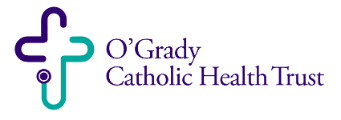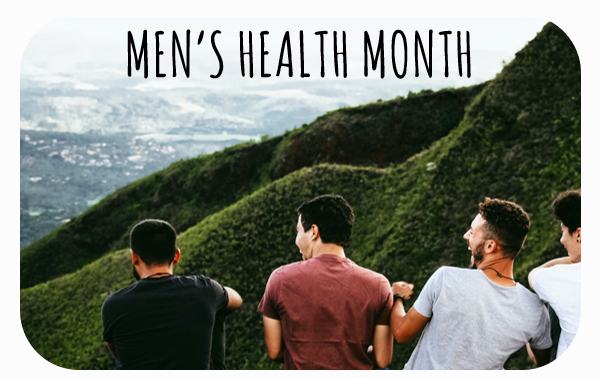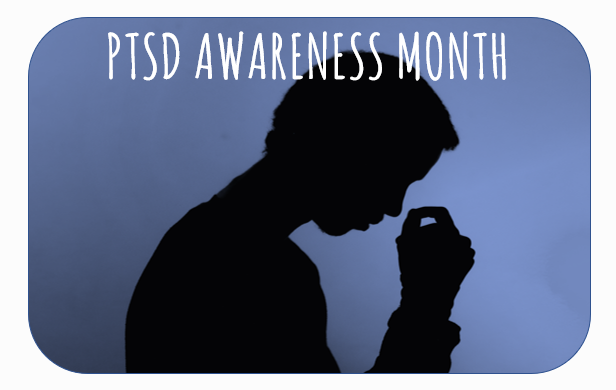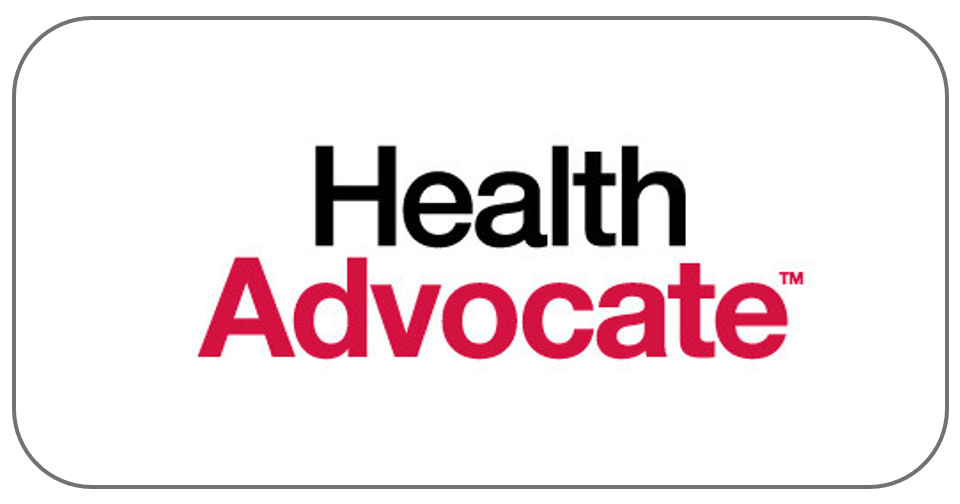Men’s Health Month was created to empower men to take control of their health. During this time, healthcare providers, public policy makers, and the media make an extra push to encourage men and boys to seek regular medical advice and early treatment for disease and injury.
Men can take daily steps to live safer and healthier lives and protect themselves from disease and injury. This doesn’t have to be an entire overhaul of how you go about your daily routine. There are numerous things you can do every day to improve your health and stay healthy. Try the following suggestions:
Get Enough Sleep: Insufficient sleep is associated with a number of chronic diseases and conditions, such as diabetes, cardiovascular disease, obesity and depression. Also, insufficient sleep can be responsible for motor vehicle and machinery-related accidents, which causes substantial injury and disability each year. Sleep guidelines from the National Sleep Foundation recommend that in general, adults need between 7-9 hours of sleep a night.
Be Smoke Free: Avoid smoking and secondhand smoke. Quitting smoking has immediate and long-term benefits. According to Mayo Clinic, within 20 minutes after smoking that last cigarette, your body begins a series of positive changes that continues for years. The heart rate decreases, twelve hours later, carbon monoxide in the blood returns to normal, and after a year the risk of having a heart attack related to smoking drops by half. There’s no time like the present to quit.
Be Physically Active: The summer is a good time to get active with family and friends. Physical activity can help you maintain a healthy weight and lower cholesterol and blood pressure. The Surgeon General recommends that adults should engage in moderate exercise for 2 hours and 30 minutes every week. Walk, go for a hike or a bike ride, or head to the local pool for a swim. For more information, see CDC’s Division of Nutrition, Physical Activity, and Obesity web site.
Eat What Counts: Eat a variety of fruits and vegetables every day. Try to steer clear of drinks high in calories, sugar, fat and alcohol. Choose healthy snacks. Here’s a list provided by the American Heart Association of ways to eat a healthier diet.
Pay Attention to Signs and Symptoms: According to the Centers for Disease Control and Prevention (CDC), men should pay special attention to symptoms like discharge, excessive thirst, rash or soreness, problems with urination, and shortness of breath, and should see a doctor if they occur.
Know and Understand Your Numbers: Keep track of your numbers for blood pressure, blood sugar, cholesterol, and body mass index (BMI), just to name a few. These numbers can provide a glimpse of your health status and risk for certain diseases. Be sure to ask your doctor what tests you need and how often you need them. If your numbers are high or low, he or she can explain what they mean and make recommendations to help you get them to a healthier range.
Get a Doctor Lined Up. It’s very important for men to have an established primary care physician. Having regularly scheduled visits with your doctor, who can track your health as you age, can be one of the best courses of preventative care for any man.
Posttraumatic stress disorder (PTSD) is a mental health problem. PTSD can only develop after you go through or see a life-threatening event. It’s normal to have stress reactions to these types of events, and most people start to feel better after a few weeks or months.
There are currently about 8 million people in the United States with PTSD.
Even though PTSD treatments work, most people who have PTSD don’t get the help they need. Everyone with PTSD—whether they are Veterans or civilian survivors of sexual assault, serious accidents, natural disasters, or other traumatic events—needs to know that treatments really do work and can lead to a better quality of life.
What Are the Symptoms of PTSD?
PTSD symptoms usually start soon after the traumatic event, but they may not appear until months or years later. They also may come and go over many years. If the symptoms last longer than four weeks, cause you great distress, or interfere with your work or home life, you might have PTSD.
There are 4 types of PTSD symptoms, but they may not be exactly the same for everyone. Each person experiences symptoms in their own way.
- Reliving the event (also called re-experiencing symptoms).
- Avoiding things that remind you of the event.
- Having more negative thoughts and feelings than before the event.
- Feeling on edge or keyed up (also called hyperarousal).
Children may have symptoms like those above or other symptoms. As children get older, their symptoms are more like those of adults. Here are some examples of PTSD symptoms in children and teens:
- Children under 6 may get upset if their parents are not close by, have trouble sleeping, or act out the trauma in their play.
- Children ages 7 to 11 may also act out the trauma through play, drawings, or stories. Some have nightmares or become more irritable or aggressive. They may also want to avoid school or have trouble with schoolwork or friends.
- Children age 12 to 18 have symptoms more similar to adults: depression, anxiety, withdrawal, or reckless behavior like substance abuse or running away.
Do People With PTSD Get Better?
After a traumatic event, it’s normal to think, act, and feel differently than usual—but most people start to feel better after a few weeks or months. Talk to a doctor or mental health care provider (like a psychiatrist, psychologist, or social worker) if your symptoms:
- Last longer than a few months
- Are very upsetting
- Disrupt your daily life
“Getting better” means different things for different people. There are many different treatment options for PTSD. For many people, these treatments can get rid of symptoms altogether. Others find they have fewer symptoms or feel that their symptoms are less intense. Your symptoms don’t have to interfere with your everyday activities, work, and relationships.
Learn about PTSD symptoms and treatments to help you get better.
Feeling like something isn’t quite right? Conifer Health Solutions and its Personal Health Nurses (PHNs) are the perfect option for you and your family’s health needs. To get started, call Patricia Mullen at 1-800-459-2110 X2247 or 410-919-4428.
Enrolled in our Medical Plan? Our EAP through Health Advocate provides confidential access to a Licensed Professional Counselor for short-term counseling for any stressful issue any time you need it.
Hard to make time in your busy schedule? Our designated telehealth provider, MDLIVE, offers online behavioral health visits to address all kinds of conditions, including Stress!
Schedule your annual preventive care visit now!
Getting your preventive screening tests is one of the most important things you can do to protect your health.
LEARN MORE ABOUT PREVENTIVE CARE
Screenings can help find diseases early, when they may be easiest to treat and before you have symptoms. Talk to your doctor about whether—and when—you should get these common screening tests based on your age, health history, genetics and other personal risk factors.
The Trust’s health plans cover a set of these preventive services at no cost to you. That’s no copayment, no co-insurance, and no deductible to receive recommended preventive health services, such as screenings, vaccinations, and counseling.
For example, depending on your age, you may have access to preventive services such as:
- Blood pressure, diabetes, and cholesterol tests
- Many cancer screenings, including mammograms and colonoscopies
- Counseling on such topics as quitting smoking, losing weight, eating healthfully, treating depression, and reducing alcohol use
- Regular well-baby and well-child visits, from birth to age 21
- Routine vaccinations against diseases such as measles, polio, or meningitis
- Counseling, screening, and vaccines to ensure healthy pregnancies
- Flu and pneumonia shots
IMPORTANT
These services are only covered at 100% when delivered by a doctor or other provider in your plan’s network.


Need help finding a provider?
Our Personal Health Advocates can help you get to the right care
at the right time and resolve a wide range of issues, at no cost to you.
LEARN MORE ABOUT ABOUT OUR EXPERT HEALTHCARE HELP
Health Advocate’s expert healthcare help can:
- Find the right in-network doctors and make appointments
- Support medical issues, from common to complex
- Answer questions about diagnoses and treatments
- Research the latest treatment options
- Coordinate services related to all aspects of your care
- Coordinate second opinions and transfer medical records
- Research and locate elder care services
- Resolve insurance claims and medical billing issues
- And much more!
Quickly reach us any time you like – by phone, email, and secure messaging.





